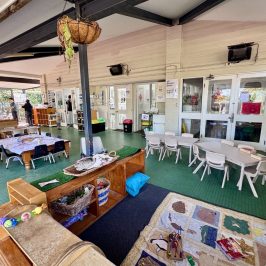Is your child having a difficult time falling asleep? The importance of sleep for children cannot be overemphasized. Unfortunately, up to 40% of children in Australia experience some sleep problems.
This is a major cause for worry because sleep deprivation in children has been linked to cognitive and behavioural problems such as bullying, anxiety and attention disorders.
Here are some tips to help them nod off a little easier:
1. Establish a Routine
Depending on the sleep needs of your child, it is important to set up a regular sleep and wake-up cycle. This will allow their body to get used to a cycle, meaning they will start to feel sleepy when the time for bed approaches.
You may also want to set up bedtime rituals to set a naptime atmosphere. Routinely doing things such as reading a book or bathing before bed can help children get into “sleep mode” once those activities are carried out.
2. Make Them Feel Safe
Kids will find it difficult to sleep in an environment where they are not at ease. When someone feels fearful, the body responds by producing the flight hormone commonly referred to as adrenalin.
This puts the body in high alert mode, making it difficult to sleep. If sleep occurs, it can be restless and disrupted.
If you have a little one that is afraid of the dark, reassure them and accompany them to bed. If it makes them feel better, let them sleep with the lights on. Habits such as reading a bedtime story together and cuddling can elicit positive emotions and can help children to find sleep easier.
3. Avoid Caffeine
It is no secret that caffeine and sleep do not go hand in hand. This is because it promotes the production of adrenaline and blocks sleep-inducing chemicals. This leads to increased alertness, making it hard to fall asleep.
Also, caffeine does not leave the body easily; it will take about 6 hours for half the amount consumed to be expelled. In contrast, it only takes 15 minutes for the stimulating effect to kick in. Unfortunately, the effects of caffeine are worse in young children.
The best thing you can do is to remove caffeine from the diet of your little ones by way of cola, energy drinks and chocolate.
4. Make Their Room Comfortable
A bedroom must be inviting and warm. When it comes to a kid’s bedroom, it must also be attractive. However, try not to not go overboard. Too many vibrant colours can be distracting and can make it difficult for them to relax. Cool blue or pink are some common colours that produce a relaxing effect.
Do not forget the bed. A mattress can make the difference between a restful night for your munchkin and an uncomfortable one. According to a past poll, 92% of the people believe that a comfortable mattress is essential for a good night’s sleep. If you think your kids would do with a better mattress, check out this website for some great deals.
5. Turn Off The TV Before Bedtime
Watching TV in the evenings is a favourite pastime for many families. However, it can affect the quality of sleep your little ones get. And it is not just the TV, but also other gadgets such as phones or computers can as well affect the ability to sleep.
So where is the connection between sleep and screens? Research shows that blue light emitted by these screens can affect the levels of a hormone called melatonin which affects sleep-wake cycles. In children, half an hour of blue light before bed can keep them up an extra two hours.
As such, let your kid’s bedroom be screen-free and limit TV time in the evenings. Ideally, switch off the TV at least two hours before bedtime.
Enough Sleep is Not an Option
Children require different amounts of sleep, depending on their age and other factors. While sleeping is a natural process, it’s important to monitor the sleeping habits of your little ones to ensure that they are getting enough sleep.














